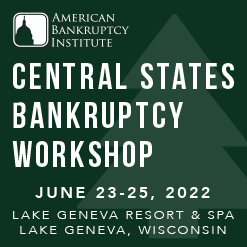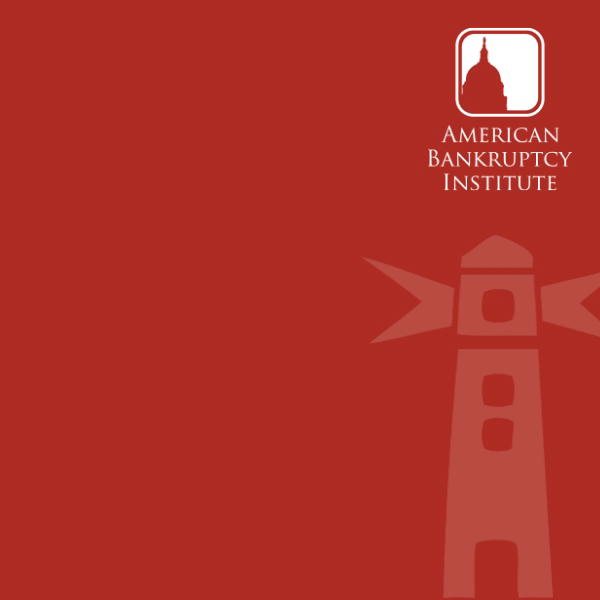| |
| |
| vol 21, num 2 | June 2022 |
| |
|
|
| |
|
|
|
|
|
| |
| Liquidating Substantially All Assets in a Subchapter V Chapter 11: A Recent Case Study |
| Since going effective on Feb. 19, 2020, much has been written regarding the restructuring benefits of a chapter 11, subchapter V case. Prior to its implementation, many small businesses were, from a practical standpoint, unable to benefit from chapter 11 due to the expense of filing and prosecuting a traditional chapter 11 case. The introduction of subchapter V has shifted that, thus giving smaller businesses a streamlined process to recognize the benefits of a chapter 11 restructuring. Indeed, the stated purpose of subchapter V is to streamline the process by which small business debtors reorganize and rehabilitate their
financial affairs. |
| |
|
|
|
|
| |
|
| |
| The Cost of Resolving Mass Tort Claims Through Bankruptcy |
| The term “mootness” refers to a category of related precepts that preclude a reviewing court from reaching the underlying merits of a controversy. While questions dog this doctrine’s constitutional and prudential forms outside of the Bankruptcy Code’s ambit, few doubt either’s general validity. However, within bankruptcy’s periphery, more substantive questions abound. There, constitutional mootness’s recognizable form blurs, and the prudential doctrine dubiously known as equitable mootness resists pragmatic simplification. |
| |
|
|
|
|
| |
|
| |
| Severing Third-Party Releases: A Path Forward After Patterson |
| In an opinion issued on January 13, 2022, Judge David Novak of the United States District Court for the Eastern District of Virginia struck down non-consensual third-party releases from a plan confirmed by the bankruptcy court. While appellate courts commonly consider the wholesale invalidation of releases and subsequent remand of confirmed plans of reorganization or liquidation (“plans”), Judge Novak took the uncommon step in Patterson to sever these releases from the confirmed plan before remanding it on other grounds. After finding the releases lacked sufficient factual and legal support, Judge Novak concluded they should not
only be invalidated but should be altogether severed from the plan. |
| |
|
|
|
|
| |
|
| |
| Post-Petition, Pre-Solicitation Plan-Support Covenants: Potential Tools for Mitigating a Free-Fall Filing |
| In bankruptcy, a debtor-in-possession’s chief goal is to get its plan of reorganization confirmed by the bankruptcy court. Among other things, the Bankruptcy Code requires that at least one class of impaired creditors vote to accept the plan — i.e., that at least two-thirds in amount and one-half in number of the allowed claims in such class accept the plan. Garnering the necessary creditor support for a plan is not always an easy undertaking, which has led to the modern trend of debtors filing pre-packaged or pre-arranged chapter 11 cases to ensure they have a clearer path to a confirmable plan. However, it is not always feasible
to secure creditor support before filing for bankruptcy — especially for debtors who “free fall” into bankruptcy. Therefore, some debtors who “free fall” into bankruptcy are using post-petition, pre-solicitation plan-support covenants to ensure that come plan-voting time, they will have — or be close to having — the necessary votes to confirm a plan.
In In re Grupo Aeroméxico S.A.B. de C.V., the debtors had no choice but to file a “free fall” case given the immediate, drastic effects of the COVID-19 pandemic on their businesses. However, during Aeroméxico’s chapter 11 cases (the “AMX cases”), the debtors were able to secure post-petition plan-support covenants with certain creditors to lock in material amounts of plan support early in the case. Importantly, even in the face of objection, the court found that such covenants were permitted.
|
| |
|
|
|
|
| |
|
| |
| Business Reorganization Committee Leadership for 2022 |
| The Business Reorganization Committee is proud to announce our new leaders for 2022!
You can also visit the committee's homepage for more newsletter articles, relevant recordings and other committee information.
The committee is always eager to welcome new volunteers. Please contact any member of our leadership team to find out how you can get involved.
|
|
|
| |
|
|
|
|
|
|
|
|
|
| |














